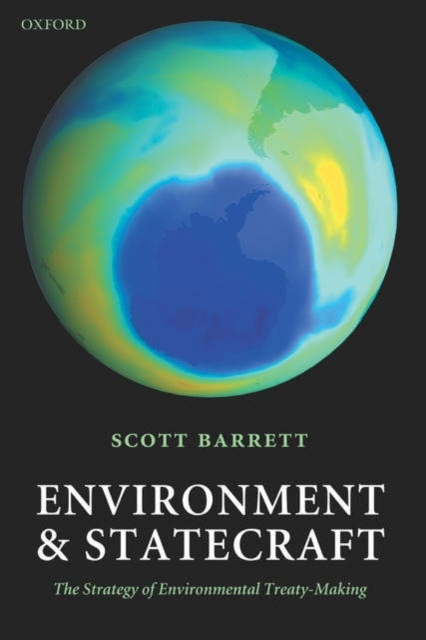Environment and Statecraft The Strategy of Environmental Tre
0.0
( 0 )
Engelsk
How did the Montreal Protocol succeed in protecting the earth's ozone layer? Why will the Kyoto Protocol fail to materially dampen global climate change? Are treaties really needed? This book develops...
På lager i 0 butikker.
Forlagsbeskrivelse af Environment And Statecraft The Strategy Of Environmental Tre af Scott Barrett
How did the Montreal Protocol succeed in protecting the earth's ozone layer? Why will the Kyoto Protocol fail to materially dampen global climate change? Are treaties really needed? This book develops a theory to answer these questions - one that integrates the approaches used in economics, political science, international law, and game theory. Environmental problems like global climate change and stratospheric ozone depletion can only be remedied if states cooperate with one another. But sovereign states usually care only about their own interests. So states must somehow restructure the incentives to make cooperation pay. This is what treaties are meant to do. A few treaties, such as the Montreal Protocol on Substances that Deplete the Ozone Layer, succeed. Most, however, fail to alter the state behaviour appreciably. This book develops a theory that explains both the successes and the failures. In particular, the book explains when treaties are needed, why some work better than others, and how treaty design can be improved. The best treaties strategically manipulate the incentives states have to exploit the environment, and the theory developed in this book shows how treaties can do this. The theory integrates a number of disciplines, including economics, political science, international law, negotiation analysis, and game theory. It also offers a coherent and consistent approach. The essential assumption is that treaties be self-enforcing-that is, individually rational, collectively rational, and fair. The book applies the theory to a number of environmental problems. It provides information on more than three hundred treaties, and analyses a number of case studies in detail. These include depletion of the ozone layer, whaling, pollution of the Rhine, acid rain, over-fishing, pollution of the oceans, and global climate change. The essential lesson of the book is that treaties should not just tell countries what to do. Treaties must make it in the interests of countries to behave differently. That is, they must restructure the underlying game. Most importantly, they must create incentives for states to participate in a treaty and for parties to comply.
Detaljer
Forlag
Oxford University Press
ISBN
9780199286096
Sprog
Engelsk
Sider
456
Udgivelsesdato
10-11-2005
Format
Paperback
Varenr.
3221065
EAN nr.
9780199286096
Varegruppe
Engelsk non fiction div.
Højde/Dybde (mm)
26
Bredde (mm)
233
Længde (mm)
160
Vægt (g)
698
